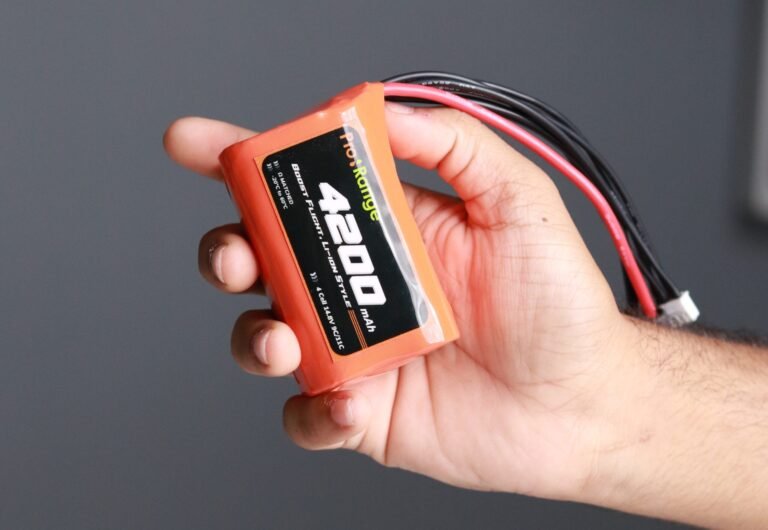The global banking industry is being transformed by blockchain technology, with Ethereum emerging as a key driver of this change. Traditional banking systems, long dominated by centralized authorities and outdated infrastructure, are now facing competition from decentralized platforms that offer greater efficiency, inclusivity, and transparency. Ethereum is not just a cryptocurrency network, it’s a powerful foundation for building decentralized applications and programmable financial products. With its robust ecosystem of smart contracts and tokens, Ethereum is redefining what financial infrastructure looks like in the digital age. In particular, Ethereum token development is enabling new types of assets, automated financial services, and democratized access to capital. This blog delves into how Ethereum is revolutionizing banking, one block at a time.
Decentralization: Breaking the Chains of Central Authority
One of Ethereum’s core innovations is decentralization, which eliminates the need for a central authority to control financial transactions or systems. In the traditional banking model, centralized institutions make key decisions, store user data, and charge fees for access. Ethereum’s decentralized blockchain challenges this monopoly, creating an open network where users can interact directly with financial tools.
-
Enhanced Transparency and Trust: Because Ethereum’s ledger is public, all transactions are visible and traceable, reducing fraud and building a more accountable financial ecosystem.
-
Permissionless Access: With Ethereum, anyone can participate in financial activities without seeking approval from a bank. This is a massive step toward democratizing finance.
-
Reduced Systemic Risk: Decentralization distributes power across a network of nodes, making the system more resilient to failures, hacks, or manipulation by a single authority.
Smart Contracts: Automating Trust and Efficiency
Smart contracts are self-executing agreements written in code and deployed on Ethereum. They allow complex financial transactions to occur automatically when certain conditions are met. This functionality has huge implications for banking operations.
Smart contracts not only streamline manual processes but also open up new use cases for financial services, from loans to asset issuance. Their reliability and immutability make them especially appealing to institutions exploring Ethereum token development for automating bonds, insurance policies, and even payroll.
-
Eliminating Manual Processes: Smart contracts remove the need for intermediaries by executing tasks autonomously, reducing human error and administrative overhead.
-
Programmable Financial Instruments: Ethereum enables the creation of custom financial products that operate according to predefined logic, from interest-bearing tokens to time-locked savings.
-
Reduced Operational Costs: With fewer intermediaries and more automation, banks can cut transaction and labor costs significantly.
Cross-Border Payments: Speeding Up International Finance
Traditional cross-border banking is slow, expensive, and prone to errors. Ethereum introduces a new standard for global payments one that is fast, low-cost, and always available.
The growing role of Ethereum token development in remittance solutions is particularly promising. By creating stablecoins or payment-focused tokens, developers are allowing users to transfer money globally without relying on intermediaries like Western Union or legacy banking systems.
-
Faster Transaction Settlements: Ethereum can process payments within seconds, bypassing the long delays often associated with bank wires.
-
Lower Transfer Fees: Without intermediary fees, users pay only a small gas fee, making it ideal for microtransactions and remittances.
-
24/7 Global Accessibility: Ethereum’s blockchain runs continuously, allowing instant payments across time zones, weekends, and holidays.
Financial Inclusion: Empowering the Unbanked
One of Ethereum’s most powerful contributions to finance is its ability to offer services to people excluded from the traditional system. Billions around the world lack access to basic financial tools like savings accounts or credit, yet many have smartphones and internet access—tools that can connect them to Ethereum-based applications.
Through Ethereum token development, projects are now creating localized financial ecosystems, community currencies, and mobile lending platforms that serve populations in need.
-
Access Without Bank Accounts: Digital wallets enable users to hold, send, and receive funds on Ethereum without needing a formal banking relationship.
-
Microlending and DeFi Platforms: DeFi services allow users to borrow small amounts instantly, often without credit checks, collateralized through Ethereum tokens.
-
Tokenization of Assets: Ethereum enables users to tokenize land titles, commodities, or even agricultural produce, turning physical value into liquid, digital assets.
Security and Fraud Reduction: Strengthening Financial Integrity
Banking systems are often targeted by fraud, identity theft, and data breaches. Ethereum counters these threats with blockchain’s inherent security and Ethereum’s cryptographic safeguards.
For financial institutions investing in Ethereum token development, security is critical. The platform’s secure infrastructure ensures that tokens can’t be duplicated or stolen without access to private keys, offering a safer environment for digital finance.
-
Tamper-Proof Records: Transactions on Ethereum are immutable, which ensures integrity in auditing and reporting.
-
Public Key Infrastructure: Ethereum wallets use strong cryptography to protect user identities and assets, reducing theft and fraud.
-
Transparent Auditing: Every transaction is recorded on-chain, allowing for complete and real-time audits by regulators or third parties.
Programmable Central Bank Digital Currencies (CBDCs): Bridging Traditional and Digital
Governments are exploring blockchain-based central bank digital currencies (CBDCs), and Ethereum provides a flexible framework for their deployment. Unlike private banking ledgers, Ethereum’s public infrastructure allows for programmable monetary policies and transparent execution.
Using Ethereum token development, central banks can issue programmable money that adjusts to macroeconomic needs, integrates seamlessly with commercial banks, and provides end-to-end visibility.
-
Smart Monetary Policies: CBDCs built on Ethereum can include features like negative interest rates or expiration-based incentives to guide consumer behavior.
-
Seamless Integration with Banks: Ethereum tokens can be wrapped in regulatory layers to allow easy integration with digital wallets and banking apps.
-
Enhanced Transparency and Control: Governments can monitor digital currency flow without compromising user privacy, striking a balance between oversight and individual freedom.
Regulatory Challenges and Institutional Adoption: The Road Ahead
The integration of Ethereum into banking faces hurdles, especially in regulatory compliance. However, institutions are steadily embracing blockchain due to its long-term efficiency, flexibility, and transparency.
As adoption grows, banks are hiring blockchain experts, launching pilot programs, and exploring Ethereum token development to digitize traditional assets like bonds or securities.
-
Navigating Compliance: AML and KYC standards can be embedded into Ethereum-based applications using decentralized identity solutions.
-
Institutional Investment Growth: Banks and asset managers are tokenizing portfolios and participating in DeFi, a sign of maturing confidence in Ethereum.
-
Public-Private Collaboration: Regulatory frameworks are evolving, and partnerships between governments and Ethereum developers are setting the groundwork for mainstream use.
Conclusion: Ethereum as the Backbone of the Future Financial Ecosystem
Ethereum is doing more than disrupting banking—it’s building a smarter, more inclusive, and programmable financial system from the ground up. From smart contracts to cross-border payments, from CBDCs to fraud prevention, the use of Ethereum token development is unlocking new possibilities for innovation and resilience. As banks and regulators adapt to this paradigm shift, Ethereum stands at the center of a new financial era one that prioritizes transparency, efficiency, and global access. The infrastructure of tomorrow is already here, and it’s being written in code on Ethereum.




